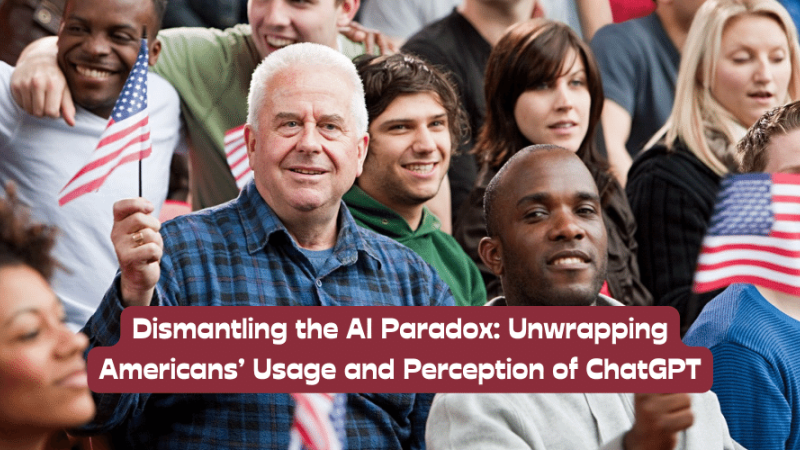
“Artificial Intelligence is the new electricity," said Andrew Ng, founder of Coursera. Indeed, AI has surged and become a buzzword in countless industries. From voice assistants to autonomous vehicles, AI manifests its capabilities. However, when the spotlight shifts to language model AI like ChatGPT, interesting data emerges. A study from Pew Research unfolds Americans’ engagement and perceptions towards this AI tool.
Intriguingly, despite its rising prominence, only a fraction of Americans – about 18% – reported utilizing ChatGPT. The statistics presented a clear skew, with more men, young adults (aged 18-29), and college-educated individuals using the system. This finding might challenge the impression some hold about AI tools becoming integral chunks of everyone's digital lives.
ChatGPT's applications span various domains, yet more users recounted using it for “entertainment” or “learning” purposes than for work – sculpting an image of a digital companion more than a labor automation tool. Usage drifted towards queries like “What’s the Higgs boson” or “Tell me a fairy tale about Timothée Chalamet,” rather than complex data extraction commands, offering glimpses into how the conversational model is deployed.
While only 19% of employed individuals perceived a significant influence of this tool on their job, there was anticipation of AI’s impact on certain professions such as software engineering, graphic designing, and journalism; albeit, it's likely the notion of AI as a whole rather than ChatGPT specifically in play here. Interestingly, 27% projected no impact at all, a testament to the belief that AI stands as a tool to assist rather than replace human expertise.
To conclude, the perception of AI and ChatGPT exposes an interesting dichotomy. There is undeniable intrigue coupled with a layer of apprehension, a testament to the unpredictability of AI development trajectories. With 47% of the respondents voicing more concerns than excitement about AI's role in daily life, a significant leap from last year's 31%, we observe an intriguing confluence of knowledge, excitement, and uncertainty. As AI continues to evolve, it's likely public sentiment will keep up its dynamic dance, underscoring the importance of fostering a broad understanding of these digital tools.





